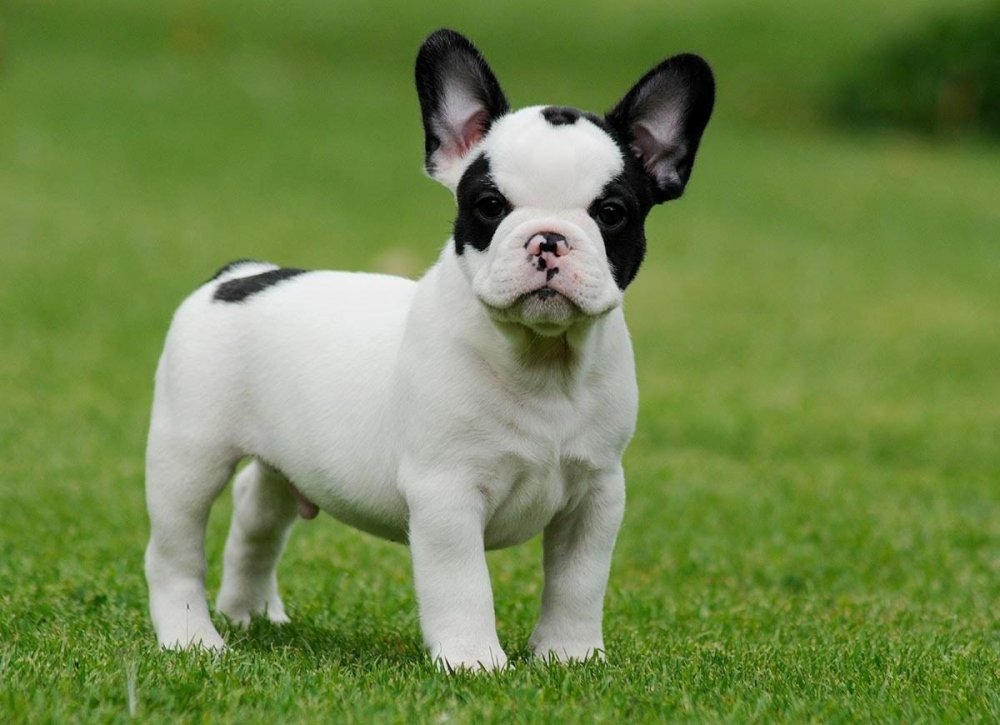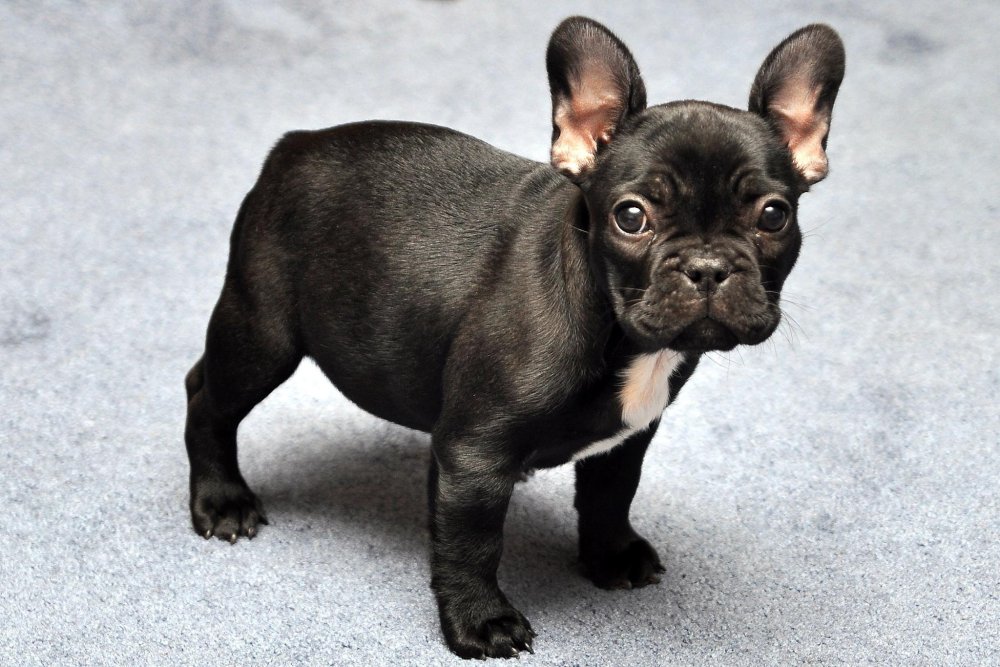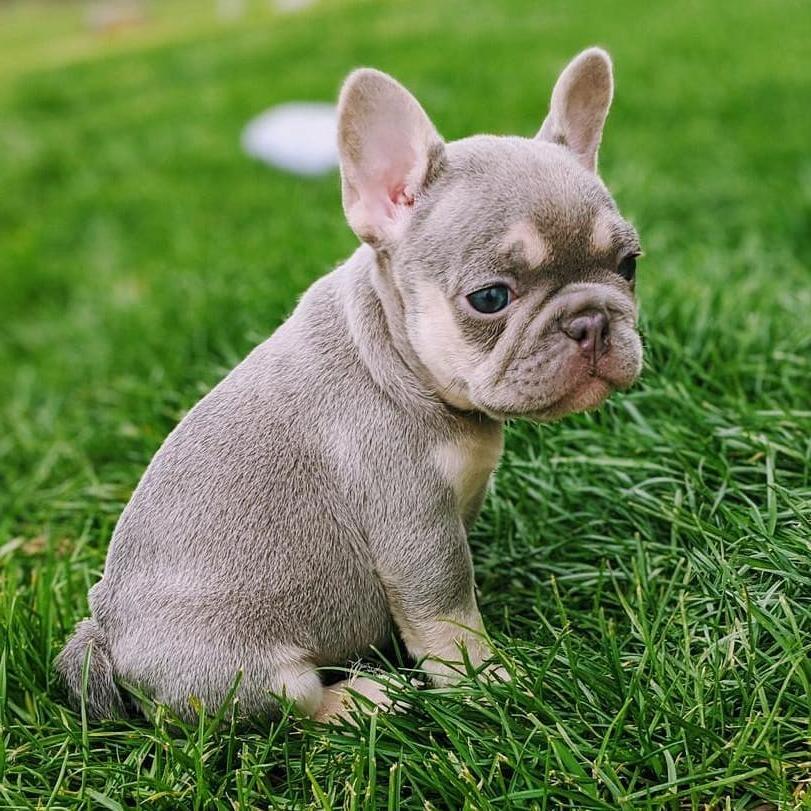- Breed Category: Companion dog
- Country of Origin: France
- Average Height: 30-33 cm; 11-13 inches
- Average Weight: Males 9-14 kg; 20-31 lbs, Females 8-13 kg; 18-29 lbs
- Average Life Span: 10-12 years
- Grooming Requirements: Low, occasional brushing
- Exercise Requirements: Moderate, daily walks
- Coat Type: Short, smooth
- Coat Color Variations: Brindle, fawn, white
- Shedding Level: Moderate
- Ear Type: Bat-like, erect
- Tail Type: Short, straight or corkscrew
- Temperament: Affectionate, playful, alert
- Intelligence Level: Average
- Barking Tendency: Low
- Compatibility with Children: High, very friendly
- Compatibility with Other Pets: Generally good
- Training Ease: Moderate, can be stubborn
- Common Health Issues: Brachycephalic syndrome, hip dysplasia
- Dietary Needs: High-quality, balanced diet
- Energy Level: Moderate
- Drooling Tendency: Low to moderate
- Sensitivity to Weather: High, sensitive to heat
- Overall Maintenance Level: Moderate
- Original Purpose: Companion, ratting dog
- Year of Recognition by Kennel Clubs: 1898
- Famous Breed Representatives: Manny the Frenchie
- Apartment Friendly: Yes, very suitable
- Best Suited For: Families, singles, city living
- Cost of Ownership: Moderate to high
- Unique Traits: Distinctive bat ears
- Cultural Significance: Popular in fashion and media
- Popularity Rank: Top 5 in Australia
Think all small dogs are just yappy companions? The French Bulldog might surprise you. Known for their bat-like ears and charming personalities, these little dogs pack a lot of character into a compact frame. This article dives into the unique traits, rich history, and essential care tips for French Bulldogs.
Originating in the 19th century, French Bulldogs were bred in England as miniature Bulldogs. They gained popularity in France, where lace workers brought them as companions. Over time, they became a symbol of Parisian café culture, adored for their playful yet relaxed nature. Today, they’re a favourite among city dwellers worldwide, thanks to their adaptability and affectionate temperament.
French Bulldog: A Cultural Icon

Early Development of the Breed
French Bulldogs, with their roots in 19th-century England, were initially bred as smaller versions of the English Bulldog. They were companions to lace workers who migrated to France, where the breed truly flourished. This cross-channel journey shaped the French Bulldog into the charming companion we know today.
Role in French Society and Culture
In France, these dogs quickly became a staple of Parisian life. Their presence in cafes and salons made them a beloved symbol of the city’s vibrant culture. French Bulldogs were more than just pets; they were part of the social fabric, embodying the relaxed yet lively spirit of Paris.
Key Historical Figures
While specific individuals aren’t always highlighted, the breed’s development was influenced by the collective efforts of breeders and enthusiasts in both England and France. Their dedication ensured the French Bulldog’s unique characteristics were preserved and celebrated.
Physical Characteristics
French Bulldogs are instantly recognisable with their bat-like ears and compact, muscular build. Their short coat comes in a variety of colours, and their expressive eyes often convey a sense of curiosity and warmth. Despite their small size, they have a sturdy frame, making them both adorable and robust companions.
Appearance and Unique Traits
French Bulldogs are a delightful mix of charm and sturdiness. Their compact size makes them perfect for city living, yet they carry a robust build that defies their small stature. The bat-like ears are a standout feature, giving them an alert and curious look. Their short, smooth coat comes in a variety of colours, including fawn, brindle, and pied, often with distinctive markings that add to their unique appeal.
Beyond their appearance, French Bulldogs have a few physical traits that set them apart. Their flat face and short nose, while adorable, require some special care, especially in warmer climates. Despite their compact build, they have a surprisingly muscular frame, making them both cuddly and resilient.
Temperament and Behaviour
When it comes to temperament, French Bulldogs are known for their affectionate and easy-going nature. They thrive on human interaction and are happiest when they’re part of the family activities. While they can be playful, they’re also content to lounge around, making them ideal companions for both active and relaxed lifestyles. Their sociable nature means they get along well with other pets and children, adding to their appeal as a family pet.
French Bulldog as a Family Pet

Personality Traits
French Bulldogs are known for their affectionate and playful nature. They love being around people and are often described as adaptable, making them great companions for various lifestyles. Whether you’re living in a bustling city or a quiet suburb, these dogs fit right in.
Suitability as a Family Pet
These little dogs are perfect for families. Their gentle and loving disposition makes them excellent companions for both adults and children. They enjoy being part of family activities and are just as happy playing in the backyard as they are snuggling on the couch.
Interaction with Children and Other Animals
French Bulldogs are generally good with kids and other pets. Their friendly and sociable nature means they can easily become a beloved member of the household. They’re patient and tolerant, which is ideal for families with young children.
Training and Exercise Needs
Training a French Bulldog is usually straightforward, thanks to their intelligent and eager-to-please nature. They respond well to positive reinforcement. While they don’t require extensive exercise, regular walks and playtime are essential to keep them healthy and happy.
Training, Exercise, and Health of French Bulldogs

Importance of Early Training and Socialisation
Getting your French Bulldog started with training and socialisation early on is crucial. These little guys are smart and eager to learn, so introducing them to different environments, people, and other animals helps them grow into well-rounded companions. Early exposure can prevent behavioural issues down the line, making them more adaptable and confident.
Recommended Training Techniques
French Bulldogs respond best to positive reinforcement. Think treats, praise, and playtime as rewards for good behaviour. Keep training sessions short and fun to hold their attention. Consistency is key, so make sure everyone in the household is on the same page with commands and rules.
Exercise Requirements and Activities They Enjoy
While French Bulldogs don’t need a ton of exercise, regular walks and play sessions are important. They enjoy interactive games like fetch or tug-of-war. Just be mindful of their breathing, especially in hot weather, as their flat faces can make it harder for them to cool down.
Health and Lifespan
French Bulldogs typically live between 10 to 12 years. They’re generally healthy, but their unique build can lead to specific health issues, like breathing difficulties and joint problems. Regular vet check-ups and a balanced diet are essential to keep them in top shape. Keeping an eye on their weight is also important, as they can be prone to obesity.
Health and Care for French Bulldogs

Common Health Issues
French Bulldogs are prone to a few health issues due to their unique build. Breathing difficulties are common because of their flat faces, and they can also experience joint problems. Regular vet visits are crucial to catch any issues early and keep them healthy.
Average Lifespan and Health Tips
These charming companions typically live between 10 to 12 years. To ensure they enjoy a long, healthy life, focus on a balanced diet and regular exercise. Keep an eye on their weight, as they can easily become overweight, which can exacerbate health problems.
Preventative Care Recommendations
Preventative care is key for French Bulldogs. Regular check-ups with the vet, vaccinations, and dental care are essential. Consider pet insurance to help manage any unexpected health costs. Also, be mindful of their environment, especially in hot weather, to prevent overheating.
Grooming and Maintenance
Grooming a French Bulldog is relatively straightforward. Their short coat requires regular brushing to keep it looking its best. Pay attention to cleaning their facial folds to prevent infections. Regular nail trimming and ear cleaning are also important parts of their grooming routine.
Coat Care and Grooming for French Bulldogs
Coat Care and Grooming Routines
French Bulldogs have a short, smooth coat that’s pretty easy to maintain. Regular brushing helps keep their coat shiny and reduces shedding. A soft-bristle brush or grooming mitt works well. Pay special attention to their facial folds, as these need to be cleaned regularly to prevent infections. A gentle wipe with a damp cloth should do the trick.
Shedding and Seasonal Grooming Tips
While French Bulldogs don’t shed excessively, they do have seasonal shedding periods. During these times, more frequent brushing can help manage loose hair. It’s also a good idea to check their skin for any signs of irritation or allergies, especially during shedding seasons.
Diet and Nutrition
A balanced diet is crucial for keeping your French Bulldog healthy. Look for high-quality dog food that meets their nutritional needs. They can be prone to obesity, so portion control is important. Treats are fine in moderation, but make sure they don’t make up more than 10% of their daily intake. Fresh water should always be available.
Nutritional Needs for Optimal Health

Foods to Include and Avoid
For French Bulldogs, a balanced diet is key. Opt for high-quality dog food rich in protein, healthy fats, and essential vitamins. Look for options with real meat as the first ingredient. Avoid foods with artificial additives, fillers, or excessive grains, as these can lead to allergies or digestive issues.
Feeding Schedules and Portion Recommendations
Consistency is crucial when it comes to feeding. Aim for two meals a day, spaced evenly. Portion sizes depend on your dog’s age, weight, and activity level, so consult your vet for personalised advice. Overfeeding can lead to obesity, a common issue in French Bulldogs, so keep an eye on their weight.
Fun Facts and Trivia
- Did you know French Bulldogs can’t swim? Their compact bodies and short legs make it difficult, so always supervise them around water.
- Despite their name, French Bulldogs actually originated in England before becoming popular in France.
- These dogs are known for their “talking” abilities, often using a range of sounds to communicate with their owners.
Interesting Tidbits about the Breed
French Bulldogs are full of surprises. For starters, they can’t swim. Their compact bodies and short legs make it tricky, so always keep an eye on them around water. Despite their name, these charming dogs actually originated in England before gaining popularity in France. They’re also known for their unique “talking” abilities, often using a range of sounds to communicate with their owners. It’s like having a little conversationalist at home!
Famous French Bulldogs in Media or History
French Bulldogs have made their mark in the world of media and history. One of the most famous Frenchies is “Stella” from the TV show “Modern Family,” who charmed audiences with her antics. In the world of fashion, designer Karl Lagerfeld’s beloved French Bulldog, “Choupette,” became a celebrity in her own right, often featured in photoshoots and social media. These dogs have a knack for stealing the spotlight, whether on screen or in real life.
Final Thoughts

French Bulldogs are charming companions with unique personalities. Their blend of affectionate nature and adaptability makes them ideal for various lifestyles. While they require specific care due to their distinctive build, the joy they bring to families and individuals is immeasurable. Embracing a French Bulldog means welcoming a loyal friend who thrives on companionship and love. Consider adopting one of these delightful dogs and experience the warmth they add to any home.
